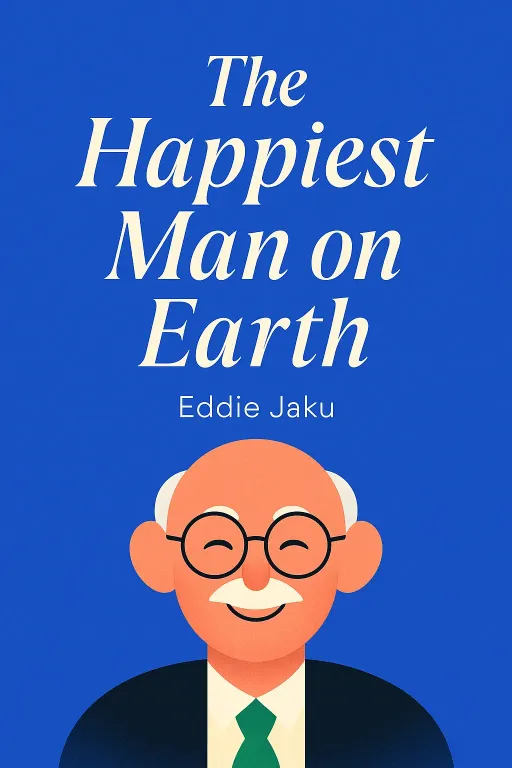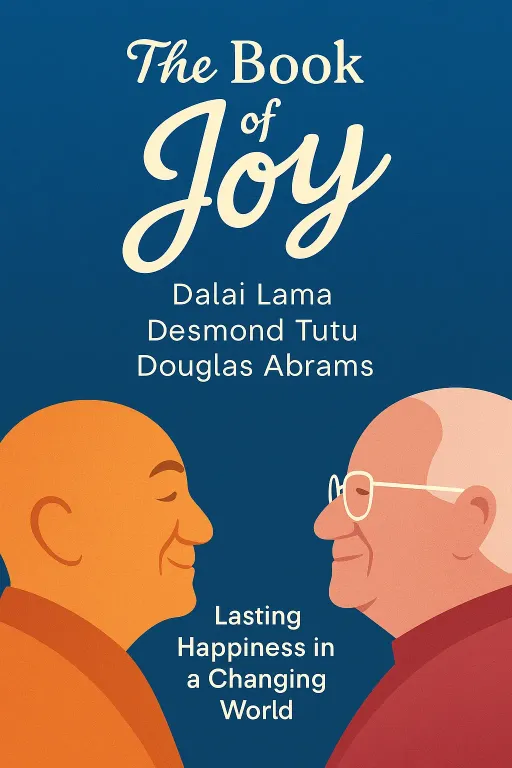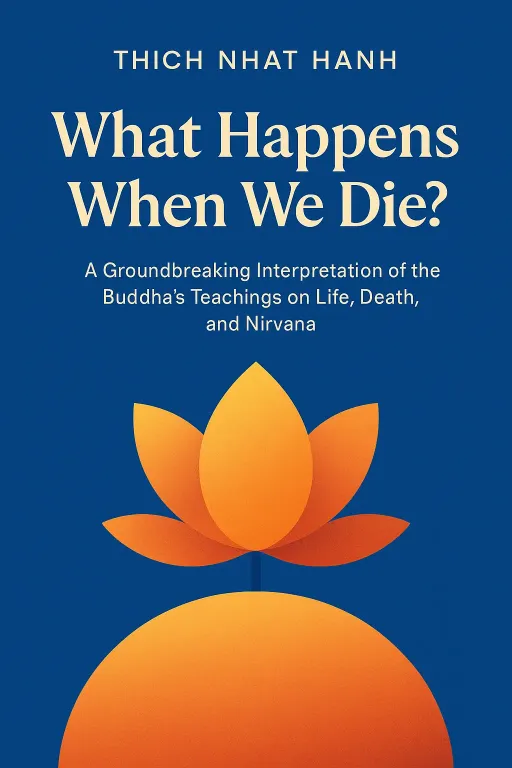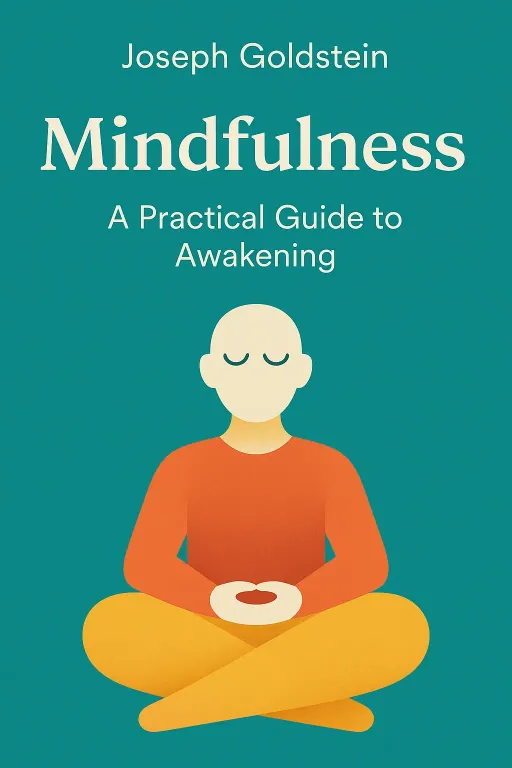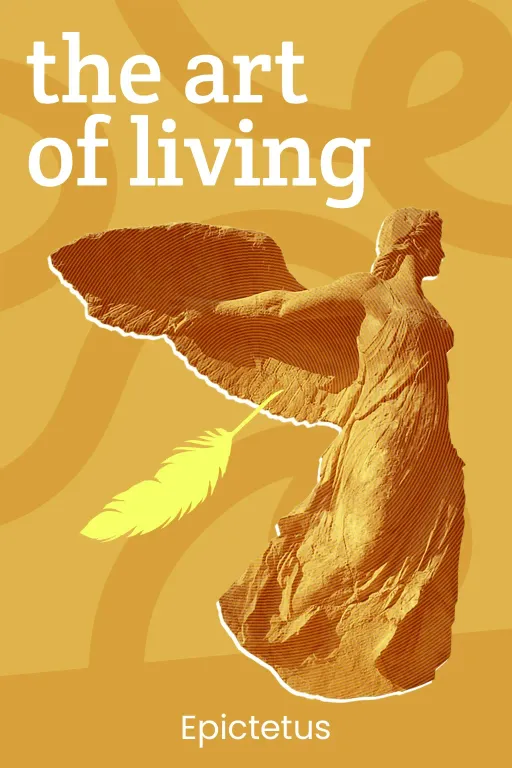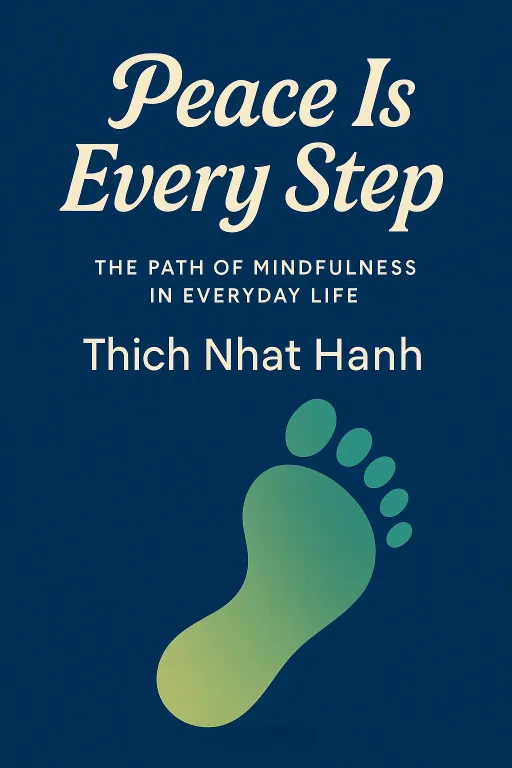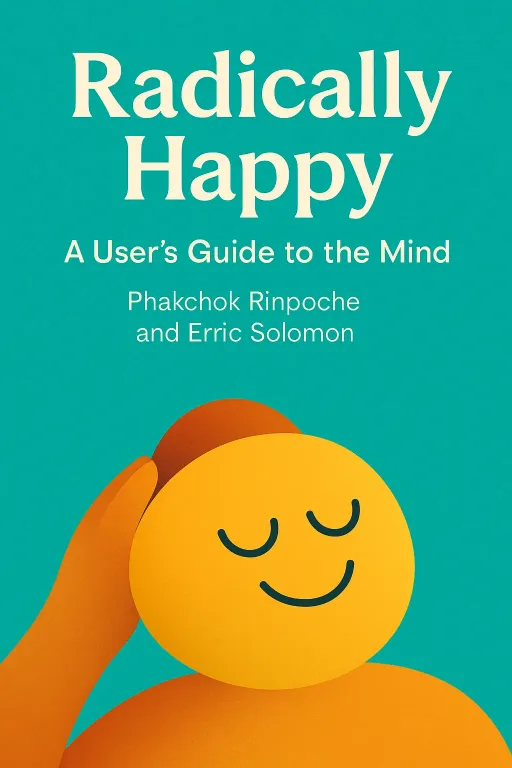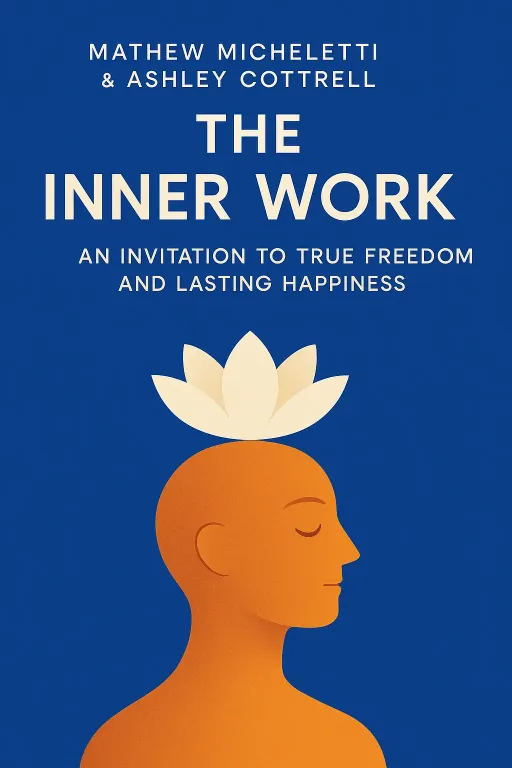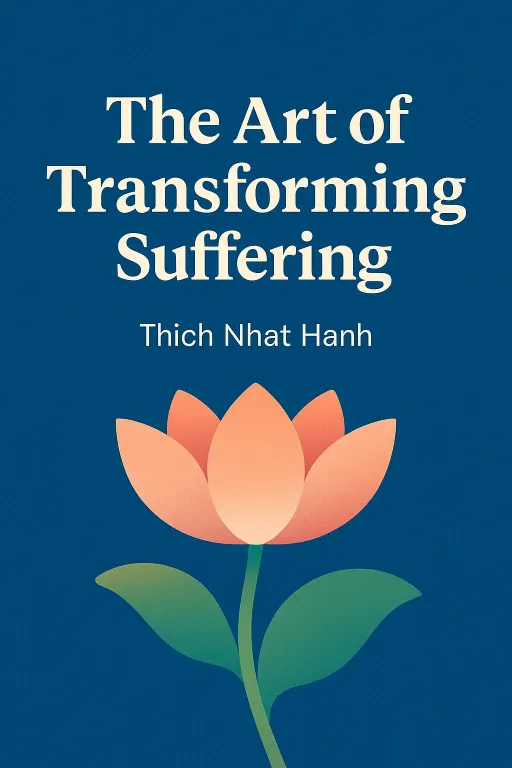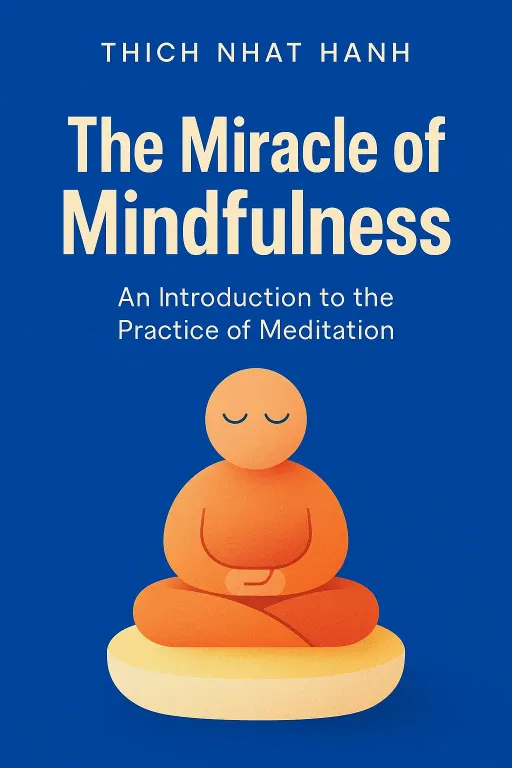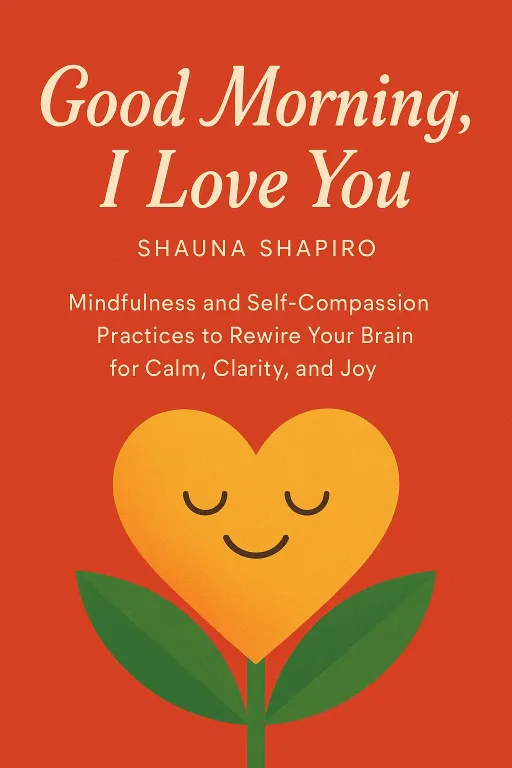
Good Morning, I Love You
11 minMindfulness and Self-Compassion Practices to Rewire Your Brain for Calm, Clarity, and Joy
Introduction
Narrator: At seventeen, Shauna Shapiro was a homecoming princess and a volleyball champion with a bright future. Then, an orthopedic surgeon delivered devastating news: her scoliosis had worsened so dramatically that she needed immediate spinal fusion surgery. The operation left her with a metal rod in her back and in excruciating, constant pain. Lying in her hospital bed, she felt her life was over before it had even begun. Her father handed her a book on mindfulness, a concept she initially dismissed. But in her desperation, she began to practice. She started by noticing just one second of peace amidst the pain. Then another. This tiny shift, this act of turning her attention with kindness toward her own suffering, didn't just help her survive; it rewired her brain and set her on a lifelong journey to understand the science of change. In her book, Good Morning, I Love You, Dr. Shauna Shapiro reveals how the principles she discovered can help anyone reshape their brain for calm, clarity, and joy.
The Brain is Malleable Clay, and Practice is the Sculptor
Key Insight 1
Narrator: For centuries, science believed the adult brain was a fixed, unchangeable machine. But groundbreaking research has overturned this idea, revealing a property called neuroplasticity. The brain is not static; it is constantly being reshaped by our experiences, thoughts, and actions. Shapiro builds her work on a simple but profound aphorism that explains this phenomenon: "What you practice grows stronger." This isn't just a motivational phrase; it's a literal description of how the brain works. When we repeat a thought or behavior, the corresponding neural pathways are activated. The more they fire together, the more they wire together, becoming stronger, faster, and more automatic.
A classic study of London taxi drivers provides a powerful illustration. To earn their license, these drivers must pass an incredibly difficult test called "The Knowledge," which requires memorizing the entire layout of London's twenty-five thousand streets. Researchers at University College London used MRI scans to study their brains and discovered something remarkable. The taxi drivers had a significantly larger hippocampus—the brain region responsible for spatial memory—compared to a control group. Furthermore, the longer a driver had been on the job, the larger this brain region was. Their brains had physically changed to meet the demands of their work. This same principle applies to our internal world. If we consistently practice self-criticism, we strengthen the neural pathways for judgment. If we practice gratitude, we build the neural architecture for joy. Neuroplasticity means we are not prisoners of our old habits; we are the architects of our own minds.
Mindfulness is Not Just Paying Attention; It's *How* You Pay Attention
Key Insight 2
Narrator: Many people mistake mindfulness for simply clearing the mind or focusing intently. Shapiro argues this is only part of the equation. The true power of mindfulness lies in the three pillars that support it: Intention, Attention, and Attitude. Attention is the act of focusing on the present moment. Intention is the why—the values and purpose that guide our practice. But the most transformative element is Attitude—the how we pay attention.
During a trip to a monastery in Thailand early in her journey, Shapiro was struggling with her meditation practice. Her mind was racing, and she grew frustrated and judgmental of her inability to find peace. A monk from London gently corrected her. He explained that mindfulness isn't just about paying attention; it's about the quality of that attention. He asked her to bring an attitude of kindness and curiosity to her wandering mind, just as a loving parent would treat a struggling child. This shift was revolutionary. He told her, "What you practice grows stronger. If you practice paying attention with judgment, you get good at judging. If you practice with kindness, you get good at being kind." Shame and criticism shut down the learning centers of the brain, while kindness and curiosity activate them. Therefore, true mindfulness is not a harsh discipline but a compassionate awareness that allows us to see clearly and respond wisely.
Self-Compassion is a More Reliable Fuel for Growth than Self-Criticism
Key Insight 3
Narrator: In our culture, self-criticism is often seen as a necessary tool for motivation. We believe that being hard on ourselves is what drives improvement. Shapiro dismantles this myth, presenting a wealth of evidence that self-compassion is a far more effective and sustainable source of resilience and growth. She contrasts self-compassion with self-esteem. Self-esteem is conditional; it depends on success and external validation. When we fail, our self-esteem plummets, leaving us feeling worthless. Self-compassion, however, is unconditional. It’s the practice of treating ourselves with the same kindness we would offer a dear friend, especially when we fail.
This isn't about letting ourselves off the hook. In fact, research shows the opposite. One study at the University of California, Berkeley, gave students an impossibly hard spelling test that they all failed. Afterward, one group was guided through a self-compassion exercise, while another was given a self-esteem boost. The self-compassion group was far more motivated to study for a subsequent test because they saw the failure as a learning opportunity, not a reflection of their worth. Self-criticism activates the brain’s threat system, releasing cortisol and shutting down our capacity for change. Self-compassion, on the other hand, activates the care system, releasing oxytocin and creating a sense of safety that gives us the courage to face our mistakes, learn from them, and try again.
Everyday Moments are the Training Ground for a More Connected Life
Key Insight 4
Narrator: The ultimate goal of these practices is not to become a perfect meditator but to integrate mindfulness and compassion into the fabric of daily life. Shapiro shows how everyday activities—from eating and parenting to sex and decision-making—can become opportunities to practice. This integration culminates in the simple yet profound practice that gives the book its title: "Good Morning, I Love You."
This practice grew out of one of the most difficult periods in Shapiro's own life, following a painful divorce. Feeling lost and overwhelmed, her meditation teacher suggested she start each day by putting a hand on her heart and saying, "I love you, Shauna." The idea felt so foreign and inauthentic that she couldn't do it. She compromised by starting with a simple, "Good morning, Shauna." Over time, this small, consistent act began to soften her inner critic. Eventually, it evolved into, "Good morning, I love you." This practice encapsulates all the book's core principles. It sets an intention for kindness. It brings attention to the present moment. And it fosters an attitude of self-compassion. Shapiro encourages extending this practice outward—to loved ones, to strangers, and even to those with whom we have difficulty—dissolving the illusion of separation and strengthening our sense of shared humanity.
Conclusion
Narrator: The single most important takeaway from Good Morning, I Love You is that our brains, and therefore our lives, are not fixed. Through the science of neuroplasticity, we have the capacity to intentionally rewire our minds for greater happiness, resilience, and compassion. The key is not found in grand, sweeping gestures, but in small, consistent practices that strengthen positive neural pathways over time.
The book challenges us to abandon the deeply ingrained cultural belief that self-criticism is the path to success. Instead, it offers a gentler, more effective alternative: treating ourselves with the same kindness we would a dear friend. What would change if, instead of starting your day with a list of worries or self-judgments, you began with a simple, quiet moment of self-compassion? What if you truly believed that what you practice grows stronger, and chose to practice kindness?
